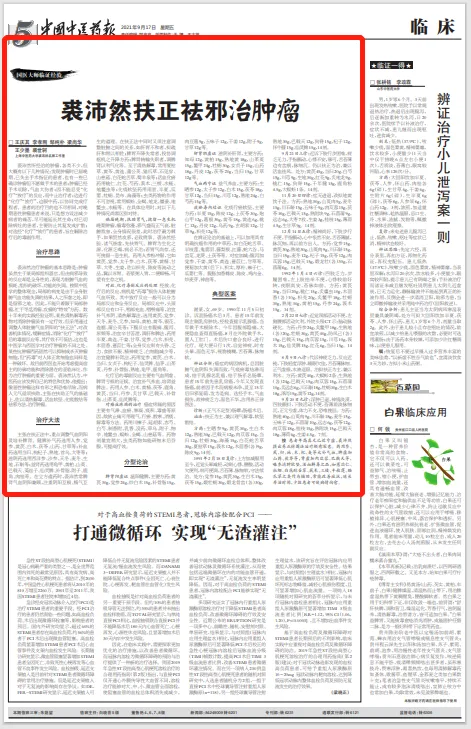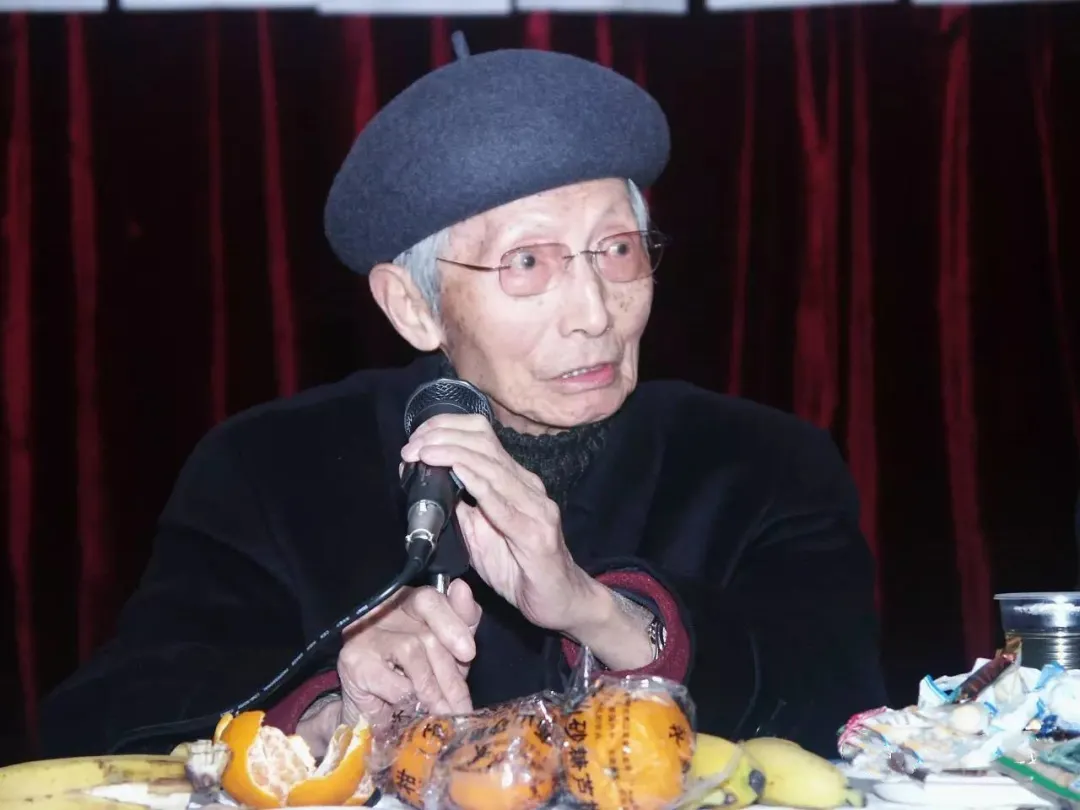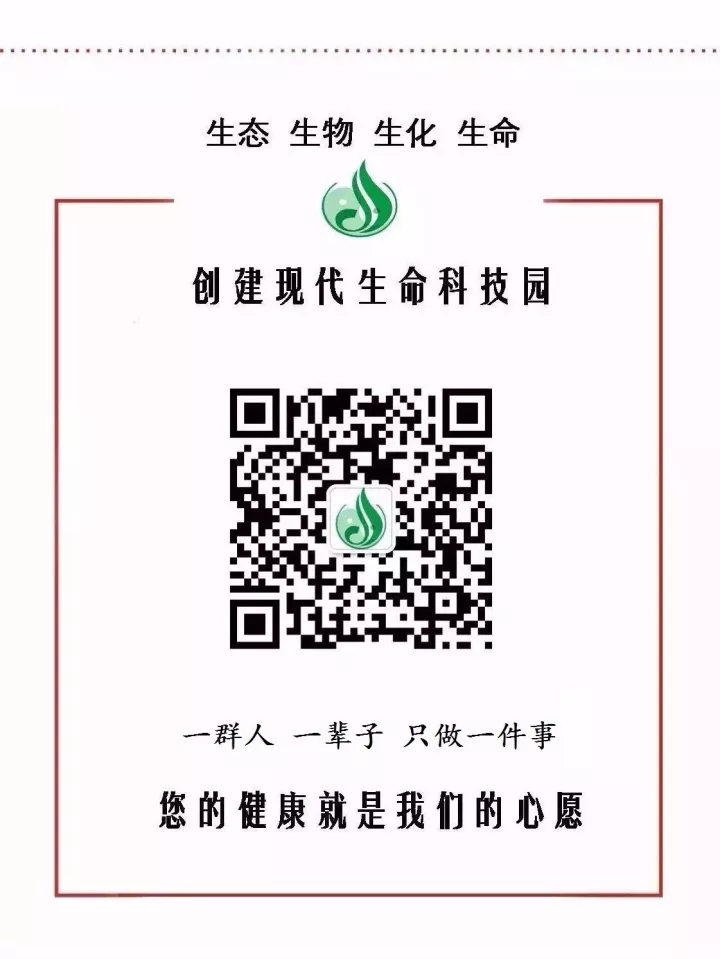

▲ Qiu Peiran, Master of Traditional Chinese Medicine (1913.1.10-2010.5.3)
Qiu Peiran, the first Master of Traditional Chinese Medicine, was a chief physician and professor at Shanghai University of Traditional Chinese Medicine.
Qiu Peiran treated various types of tumors, including the following situations: patients diagnosed with late-stage tumors who have lost the indication for surgery, patients with confirmed tumors who are unwilling to undergo surgery; patients who have had tumors surgically removed but have suffered significant damage to their qi and blood; patients who have interrupted treatment due to intolerable reactions from chemotherapy or radiotherapy; and patients who take Chinese medicine while undergoing chemotherapy or radiotherapy to assist in completing their treatment course.
The treatment goals of patients also vary. For patients with late-stage malignant tumors, the aim is to alleviate suffering and prolong life as much as possible; for patients who have had the tumor removed, the focus is on preventing recurrence or metastasis; for patients who have undergone multiple rounds of chemotherapy or radiotherapy, the goal is to relieve the toxic side effects of treatment. Below, we present Master Qiu’s treatment experiences for the benefit of colleagues.
Treatment ApproachMaster Qiu Peiran’s fundamental approach to tumor treatment is that although tumors arise in specific local tissues or organs, the reactions caused by pathogenic factors are systemic, manifesting as the depletion of qi and blood in the organs, tissue damage, and functional disorders. According to the holistic view of Traditional Chinese Medicine (TCM), local lesions are the result of systemic dysfunction of the organs’ qi and blood. The areas of deficiency in the body are where pathogens reside. Therefore, it is essential not to focus solely on the local tumor and seek “special” medicines to eliminate or attack the tumor.Decades of practical experience have shown that certain heat-clearing and detoxifying medicines have some efficacy in eliminating tumors, but employing the “supporting the righteous” method through the adjustment of the body’s organ qi and blood, yin and yang, is crucial for improving the body’s condition, alleviating symptoms, and eliminating the toxic side effects of chemotherapy and radiotherapy. This efficacy should not be underestimated, which is a significant difference between TCM and Western medicine. While certain Western anti-tumor drugs can inhibit or kill tumor cells, the “toxicity” of these drugs also damages normal cells in the body. Therefore, Western medicine is now also considering enhancing the host’s defense functions and eliminating potential subclinical lesions as an important aspect of tumor treatment.Master Qiu Peiran believes that TCM should leverage its unique characteristics and advantages. He proposed that for malignant tumors, which are tangible accumulations, it is difficult to eliminate them entirely, while the patient’s vital energy urgently needs support. He advocates for a treatment approach that, based on supporting the righteous qi, combines methods to clear heat and detoxify, invigorate blood and soften masses, and resolve phlegm and dissipate nodules to eliminate pathogens in tumor treatment.Major Treatment MethodsHe emphasizes adjusting qi and blood, yin and yang, and nourishing the spleen and kidneys in the supporting method. The qi-tonifying herbs include Ren Shen (Ginseng), Dang Shen (Codonopsis), Huang Qi (Astragalus), Bai Zhu (Atractylodes), Fu Ling (Poria), Shan Yao (Chinese Yam), and Gan Cao (Licorice); blood-nourishing herbs include Dang Gui (Angelica), Gou Qi Zi (Goji Berries), Shu Di Huang (Rehmannia), He Shou Wu (Fo-Ti), and Da Zao (Jujube); yin-nourishing herbs include Xi Yang Shen (American Ginseng), Sha Shen (Glehnia), Tian Dong (Asparagus), Mai Dong (Ophiopogon), Sheng Di Huang (Raw Rehmannia), and Shi Hu (Dendrobium); kidney-tonifying herbs include Gui Jia (Tortoise Shell), Huang Bai (Phellodendron), Shan Yao (Cornus), Ba Jiao Tian (Morinda), Tu Si Zi (Cuscuta), Xian Ling Pi (Epimedium), Bu Guo Zhi (Psoralea), Fu Zi (Aconite), Lu Jiao (Deer Antler), and Rou Gui (Cinnamon). In formulating prescriptions, Master Qiu often considers the balance of spleen and kidney qi, blood, yin, and yang, emphasizing the principle of mutual rooting of yin and yang and the mutual generation of essence and qi.In the supporting method, it is also necessary to pay attention to adjusting the relationships between the organs. For example, if the liver and stomach are disharmonious, one should soothe the liver and harmonize the stomach; if the spleen and stomach have abnormal rising and descending, one should use medicines to coordinate their functions; if the spleen and kidneys are not performing their transport functions, one should adjust the spleen and kidneys to facilitate qi transformation. As for clearing heat and detoxifying, commonly used herbs include Xia Ku Cao (Selfheal), Huang Qin (Scutellaria), Huang Lian (Coptis), Pu Gong Ying (Dandelion), Mao Zhua Cao (Cat’s Claw), Shi Jian Chuan (Hedyotis), Shan Ci Gu (Bletilla), Bai Hua She She Cao (Oldenlandia), and Shu Yang Quan (Shepherd’s Purse); for invigorating blood and resolving stasis, herbs include Tao Ren (Peach Kernel), Hong Hua (Safflower), Shao Yao (Peony), E Zhu (Curcuma), San Leng (Sparganium), Di Yu (Earthworm), and Di Bie Chong (Beetle); for resolving phlegm and softening masses, herbs include Nan Xing (Arisaema), Ban Xia (Pinellia), Gua Lou (Trichosanthes), Mu Li (Oyster Shell), Kun Bu (Kelp), and Hai Zao (Seaweed). The role of insect medicines should not be overlooked, commonly used ones include Wu Gong (Centipede), Quan Xie (Scorpion), Di Long (Earthworm), Jiang Can (Silkworm), Di Bie Chong (Beetle), and Shui Zhi (Leech). In specific applications, the following situations require differentiated treatment.Late-Stage Disease, Supporting Stomach Qi, Preserving a Breath of LifeIn late-stage tumors, the tumor toxins are widespread, with pathogenic qi being strong and righteous qi being weak, causing damage to the organs and a poor overall condition. At this time, treatment is most challenging; if one rashly attacks the pathogens, it will lead to adverse outcomes. Master Qiu’s experience indicates that all qi is deficient, so one should first support the stomach qi. The spleen and stomach are the source of transformation and generation; if the source of transformation is exhausted, the disease cannot be treated. If the stomach qi still exists, there is hope to preserve a breath of life. The medicine used is Ren Shen (Ginseng) powder taken with water, along with Huang Qi (Astragalus), Dang Shen (Codonopsis), Tai Zi Shen (Pseudostellaria), Bai Zhu (Atractylodes), Fu Ling (Poria), Huang Jing (Polygonatum), Gan Cao (Licorice), Da Zao (Jujube), and Sheng Jiang (Ginger), supplemented with Zhi Qiao (Bitter Orange) and Chen Pi (Dried Tangerine Peel) to invigorate the stomach. If porridge enters the stomach and the bowel movements are smooth, there is hope for survival.Management of Toxic Side Effects from Radiotherapy and ChemotherapyThe reactions after radiotherapy and chemotherapy are caused by the “toxicity” of the drugs damaging the organs’ qi and blood. The reactions from radiotherapy can generally be divided into local reactions and systemic reactions. Local reactions in the head and neck may include dry mouth, pharyngeal congestion, and throat pain, which should be treated with qi tonifying and yin nourishing, as well as heat-clearing and detoxifying methods, using Huang Qi (Astragalus), Dang Shen (Codonopsis), Tian Dong (Asparagus), Mai Dong (Ophiopogon), Yuan Shen (Radix Rehmanniae), Zhi Mu (Anemarrhena), Huang Bai (Phellodendron), Huang Qin (Scutellaria), Yin Hua (Honeysuckle), Lian Qiao (Forsythia), and Pu Gong Ying (Dandelion); lower abdominal reactions may include abdominal pain, diarrhea, and frequent urination, which should be treated with warming and harmonizing the liver and spleen, using Ban Xia (Pinellia), Huang Lian (Coptis), Gan Jiang (Dried Ginger), Gan Cao (Licorice), Dang Shen (Codonopsis), Bai Zhu (Atractylodes), Zhi Qiao (Bitter Orange), Mu Huo Xiang (Agastache), and Yi Yi Ren (Job’s Tears); systemic reactions may include dizziness, fatigue, loss of appetite, mental exhaustion, and leukopenia, which should be treated with spleen tonifying and kidney nourishing methods, using Dang Shen (Codonopsis), Huang Qi (Astragalus), Bai Zhu (Atractylodes), Dang Gui (Angelica), Nu Zhen Zi (Ligustrum), Gou Qi Zi (Goji Berries), Xian Ling Pi (Epimedium), Xian Mao (Curculigo), Shan Zhu Yu (Cornus), Dan Shen (Salvia), Bu Guo Zhi (Psoralea), Shu Di Huang (Rehmannia), Gui Jia (Tortoise Shell), and Lu Jiao (Deer Antler).The toxic side effects after chemotherapy mainly include symptoms of qi and blood deficiency and spleen and kidney deficiency. The treatment should focus on tonifying qi and nourishing blood, as well as nourishing the kidneys and spleen. The herbs used include Ren Shen (Ginseng), Bai Zhu (Atractylodes), Huang Jing (Polygonatum), Fu Ling (Poria), Lu Jiao (Deer Antler), Huang Qi (Astragalus), Dang Gui (Angelica), Dan Shen (Salvia), Zhi Gan Cao (Honey-fried Licorice), Ba Jiao Tian (Morinda), Bu Guo Zhi (Psoralea), Shan Zhu Yu (Cornus), and Xian Ling Pi (Epimedium).Treatment of Cancer PainThe causes of cancer pain mainly include qi stagnation, blood stasis, cold congealing, phlegm accumulation, and excessive toxins. Therefore, to relieve pain, one can use methods to regulate qi, invigorate blood, disperse cold, resolve phlegm, and detoxify. The herbs used include Chuan Lian Zi (Melia), Yan Hu Suo (Corydalis), Chi Shao (Red Peony), Bai Shao (White Peony), Zhi Xiang Fu (Cyperus), Ru Xiang (Frankincense), Mo Yao (Myrrh), Cao Wu (Aconite), Fu Zi (Aconite), Xi Xin (Asarum), Di Bie Chong (Beetle), Wu Gong (Centipede), Quan Xie (Scorpion), and Shan Ci Gu (Bletilla). The dosage of the medicines should be slightly larger, and insect medicines, if ground into fine powder and swallowed, can enhance efficacy.Pattern Differentiation Treatment● Spleen and Kidney Yang DeficiencyWarm yang and strengthen the spleen, main herbs: Huang Qi (30g), Dang Shen (24g), Chao Bai Zhu (15g), Bu Guo Zhi (15g), Rou Dou Kou (9g), Wu Wei Zi (12g), Gan Jiang (12g), Fu Zi (9g), Gan Cao (12g), etc.● Liver and Kidney Yin DeficiencyNourish yin and tonify liver and kidneys, main herbs: Zhi Mu (12g), Huang Bai (15g), Shu Di Huang (18g), Shan Zhu Yu (15g), Bie Jia (24g), Mu Li (30g), Nu Zhen Zi (15g), Shan Yao (18g), Dan Pi (12g), Fu Ling (20g), Dang Gui (15g), Gan Cao (12g), etc.● Qi and Blood DeficiencyTonify qi and nourish blood, main herbs: Sheng Bai Ren Shen (12g), Tai Zi Shen (12g), Bai Zhu (15g), Fu Ling (18g), Gan Cao (12g), Dang Gui (15g), Chuan Xiong (12g), Shu Di Huang (24g), Bai Shao (15g), etc.● Phlegm and Stasis Toxin AccumulationResolve phlegm, invigorate blood, and soften masses, main herbs: Ban Xia (15g), Chen Pi (12g), Tu Fu Ling (30g), Pao Shan Jia (12g), Ge Gen (30g), Huang Qin (18g), Huang Lian (6g), Tao Ren (12g), Dan Pi (12g), Wu Yao (9g), Xuan Hu Suo (12g), Gan Cao (9g), Zhi Qiao (12g), etc.Based on pattern differentiation treatment, one can also add Chinese herbs with clear anti-cancer effects, such as Bai Hua She She Cao (Oldenlandia), Ban Zhi Lian (Scutellaria), Gui Jian Yu (Hedyotis), Teng Li Gen (Smilax), Hong Teng (Sargentodoxa), She Liu Gu (Euphorbia), Ma Chi Xian (Portulaca), Long Kui (Solanum), and Tu Fu Ling (Smilax). For symptomatic adjustments: for diarrhea, add Dang Shen (Codonopsis), Gan Jiang (Dried Ginger), Huang Qin (Scutellaria), Huang Lian (Coptis), Yi Yi Ren (Job’s Tears), and Gan Cao (Licorice); for constipation, add Da Huang (Rhubarb, added later), Zhi Shi (Bitter Orange), Hou Po (Magnolia Bark), and Ma Zi Ren (Hemp Seed); for abdominal distension, add Xiang Yuan Pi (Citri Reticulatae), Chen Pi (Dried Tangerine Peel), Ji Nei Jin (Chicken Gizzard Lining), Chao Mai Ya (Barley Sprout), and Shen Qu (Fermented Grain).Case StudyXie, a 69-year-old female patient, was first diagnosed on November 5, 1990. She reported rectal cancer three months post-surgery. The patient had discovered a lump in her left breast 15 years ago, which was diagnosed as breast cancer, and she underwent a radical mastectomy that year. This year, due to vague abdominal pain and occult blood in the stool, she was diagnosed with rectal cancer and underwent surgery in August at an external hospital, where an artificial anus was created. The surgical wound healed well, and she underwent chemotherapy. Currently, she has one bowel movement per day, feels fatigued, experiences occasional dizziness, has a pale complexion, blurred vision, a thin tongue coating, and a fine, soft pulse.Pattern Analysis:The etiology and pathogenesis of cancer are primarily due to the imbalance of qi and blood in the organs, leading to qi stagnation, phlegm accumulation, and toxin accumulation. The lump in the breast is termed breast cancer, while the lump in the intestines is termed intestinal cancer. The patient had breast cancer 15 years ago, and this year she was diagnosed with rectal cancer. The former was not completely resolved due to surgery, and after 15 years, the old pathogen re-emerged, resulting in this condition. After multiple surgeries, qi and blood have been damaged, leading to fatigue and weakness, thus the treatment should focus on nourishing the righteous qi and gradually addressing the condition.Diagnosis:(Deficiency of Righteous Qi Type) Intestinal Cancer; post-surgery for intestinal cancer.Treatment Method:Focus on supporting the righteous qi, combined with regulating qi and detoxifying, softening masses and dissipating nodules.Prescription:Sheng Bai Ren Shen (9g), Huang Qi (30g), Sheng Bai Zhu (12g), Shu Di Huang (30g), Ba Jiao Tian (12g), Rou Cong Rong (15g), Dang Gui (12g), Mu Li (30g), Hai Zao (15g), Bai Hua She She Cao (30g), Xia Ku Cao (15g), E Zhu (12g), Mu Huo Xiang (9g), Chen Pi (9g), 14 doses.February 18, 1991, Follow-up: The above prescription was adjusted and taken until now. The patient has recently felt less dizziness, experiences palpitations upon movement, has lower back pain, and finds movement inconvenient. Appetite and bowel movements are normal, with a thin tongue coating and a fine, soft pulse. Continue the treatment. Prescription: Dang Shen (15g), Huang Qi (30g), Sheng Bai Zhu (15g), Fu Ling (15g), Duan Mu Li (30g), Duan Long Gu (30g), Shu Di Huang (30g), Ba Jiao Tian (12g), Gou Qi Zi (12g), Huai Niu Xi (15g), Xian Ling Pi (15g), 14 doses.September 21, Third Follow-up:The patient reports difficulty walking with lower limbs, fatigue, trembling fingers, palpitations, and sleep disturbances. The tongue coating is thin with teeth marks, and the pulse is fine and deep. Continue with the focus on supporting the righteous qi, combined with invigorating blood and dispelling wind. Prescription: Huang Qi (45g), Dang Gui (20g), Bai Shao (15g), Chuan Xiong (9g), Sheng Di Huang (30g), Hong Hua (9g), Zhi Di Long (9g), Tao Ren (15g), Gou Qi Zi (15g), Qian Nian Jian (15g), Lu Jiao Fen (4.5g), Da Wu Gong (1 piece), 14 doses.November 20, Fourth Follow-up:No significant changes in symptoms. Change to Di Huang Yin Zi method. Prescription: Shu Di Huang (30g), Shan Yu Rou (9g), Mai Dong (15g), Chuan Shi Hu (15g), Wu Wei Zi (9g), Rou Cong Rong (15g), Fu Ling (10g), Ba Jiao Tian (15g), Shu Fu Zhi (9g), Bo He (4.5g), Sheng Gan Cao (9g). 14 doses.December 14, Fifth Follow-up:The patient is in good spirits, but has difficulty walking with lower limbs, trembling fingers, and feelings of unease. The tongue coating is thin and greasy, and the pulse is deep and fine. Return to the previous prescription. Prescription: Dang Shen (15g), Huang Qi (30g), Shu Di Huang (30g), Shan Yu Rou (9g), Chuan Shi Hu (15g), Dang Gui (15g), Mai Dong (12g), Gou Qi Zi (15g), Fu Ling (12g), Rou Cong Rong (15g), Ba Jiao Tian (15g), Duan Long Gu (30g), and Duan Mu Li (30g), 14 doses.January 4, 1992, Sixth Follow-up:The patient reports fatigue in the limbs, difficulty walking, and trouble lifting the left upper limb. Palpitations have improved, and sleep is still good. The tongue coating and pulse remain the same. Prescription: Huang Qi (30g), Dang Gui (20g), Tao Ren (15g), Zhi Wu Gong (10g), Mu Huo Xiang (10g), Zhi Qiao (20g), Zhi Bie Jia (18g), Mu Li (30g), Shu Di Huang (30g), Huang Bai (15g), Dan Shen (24g), E Zhu (15g). 14 doses.February 22, Seventh Follow-up:The patient reports neck stiffness and difficulty moving the left side of the waist. A CT scan from an external hospital shows cerebral arteriosclerosis. Prescription: Dan Shen (24g), Zhi Bie Jia (18g), Sheng Shu Di (20g), Mu Li (30g), Huang Qi (40g), Fang Feng (15g), Ba Jiao Tian (15g), Rou Cong Rong (15g), Chuan Xiong (10g), E Zhu (15g), Xian Ling Pi (15g), Hong Hua (6g), Dang Gui (15g). 14 doses.August 9, Eighth Follow-up:The patient reports fatigue, slow responses, mild edema in the lower limbs, and poor sleep. The tongue coating is thin, and the pulse is fine. The righteous qi is deficient, and fluid retention is present. The treatment should focus on supporting the righteous qi, combined with promoting urination. Prescription: Huang Qi (40g), Da Wu Gong (2 pieces), Sheng Shu Di (24g), Ba Jiao Tian (15g), Rou Cong Rong (15g), Shi Chang Pu (10g), Zhi Yuan Zhi (6g), Chuan Shi Hu (18g), Mu Li (30g), Sheng Bai Zhu (18g), Ze Xie (15g), Huang Qin (12g), 14 doses.September 20, Ninth Follow-up:Edema has subsided, but the patient appears listless, with trembling limbs and difficulty moving the lower limbs. The tongue coating is thin, the quality is pale, and the pulse is fine and deep. The righteous qi is deficient, and physical strength is insufficient, making recovery difficult. Prescription: Shu Di Huang (40g), Shan Yu Rou (9g), Chuan Shi Hu (18g), Mai Dong (15g), Wu Wei Zi (12g), Shi Chang Pu (10g), Zhi Yuan Zhi (6g), Fu Ling (12g), Rou Cong Rong (18g), Gui Zhi (15g), Duan Mu Li (15g), Ba Jiao Tian (18g), Bo He (6g), Sheng Gan Cao (4.5g). 7 doses.Note:The patient is elderly, and the righteous qi is nearly depleted. Master Qiu Peiran’s approach of nourishing the righteous qi and gradually addressing the condition is profound. The herbs used, such as Ren Shen (Ginseng), Huang Qi (Astragalus), Dang Gui (Angelica), Shu Di Huang (Rehmannia), Bai Zhu (Atractylodes), Gou Qi Zi (Goji Berries), and Mai Dong (Ophiopogon), greatly tonify qi and blood. For spleen deficiency, add Shan Yao (Chinese Yam) and Fu Ling (Poria); for kidney deficiency, add Rou Cong Rong (Cistanche) and Ba Jiao Tian (Morinda). Additionally, incorporating herbs that resolve swelling, soften masses, invigorate blood, and detoxify, such as Yi Yi Ren (Job’s Tears), Mu Li (Oyster Shell), Bai Hua She She Cao (Oldenlandia), E Zhu (Curcuma), San Leng (Sparganium), Ban Zhi Lian (Scutellaria), and Mao Zhua Cao (Cat’s Claw) as adjuncts can often improve symptoms, prolong survival time, and in some cases, lead to recovery.
Important Statement:
Due to individual differences in constitution and condition, the prescriptions and dosages in this case are only applicable to the patient at that time. Without TCM pattern differentiation and diagnosis, do not replicate the prescriptions and dosages in this case. Readers in need should seek treatment at a legitimate hospital to avoid delaying their condition.
Source: China Traditional Chinese Medicine News, content excerpted from the September 17, 2021, fifth edition of the “China Traditional Chinese Medicine News,”Qiu Peiran Master Studio, Shanghai University of Traditional Chinese Medicine Wang Qingqi, Li Xiaogang, Zou Chunpu, Liang Shanghua, Wang Shaomo, Qiu Shike
All rights to the content of this public account belong to the original author. If there is any infringement, please contact us for immediate deletion.
The WeChat platform has changed its push rules, and we may soon lose contact with you. After reading the article, please remember to click “Like” and “View” and also star this public account in the upper right corner.
After reading the article, please remember to click “Like” and “View” and also star this public account in the upper right corner. This way, you won’t miss any new article push!
This way, you won’t miss any new article push!

Further Reading:
-
【Famous Doctors and Famous Formulas】 Dr. Li Ke’s Secret Recipe for Cancer Treatment: The Deadly Cancer-Defeating Soup, Achieving Remarkable Results!
-
Master Wang Xixing: Harmonizing Internal and External for the Treatment of Colorectal Cancer
-
【Famous Experts Forum】 Why Has Cancer Treatment Not Achieved a Fundamental Breakthrough? The “Holistic Regulation Method” is the Most Effective and Simplest Method for Humanity to Overcome Cancer!
-
Folk TCM’s Inherited Secret Recipes, Effective Recipes, and Remedies for Cancer, Worth Trying
-
【Famous Doctors and Famous Formulas】 A Collection of Secret Recipes and Effective Recipes for Nineteen Types of Cancer Treatment (Part 1)
-
National Famous TCM Doctor Zheng Yuling: Using the Concept of “Harmony” to Prevent and Treat Tumors, Achieving Significant Results
Welcome to share, forward, and reprint, please indicate the source.
Consultation, Submission, and Cooperation: WeChat ID:
Life Song(atk-1003)

